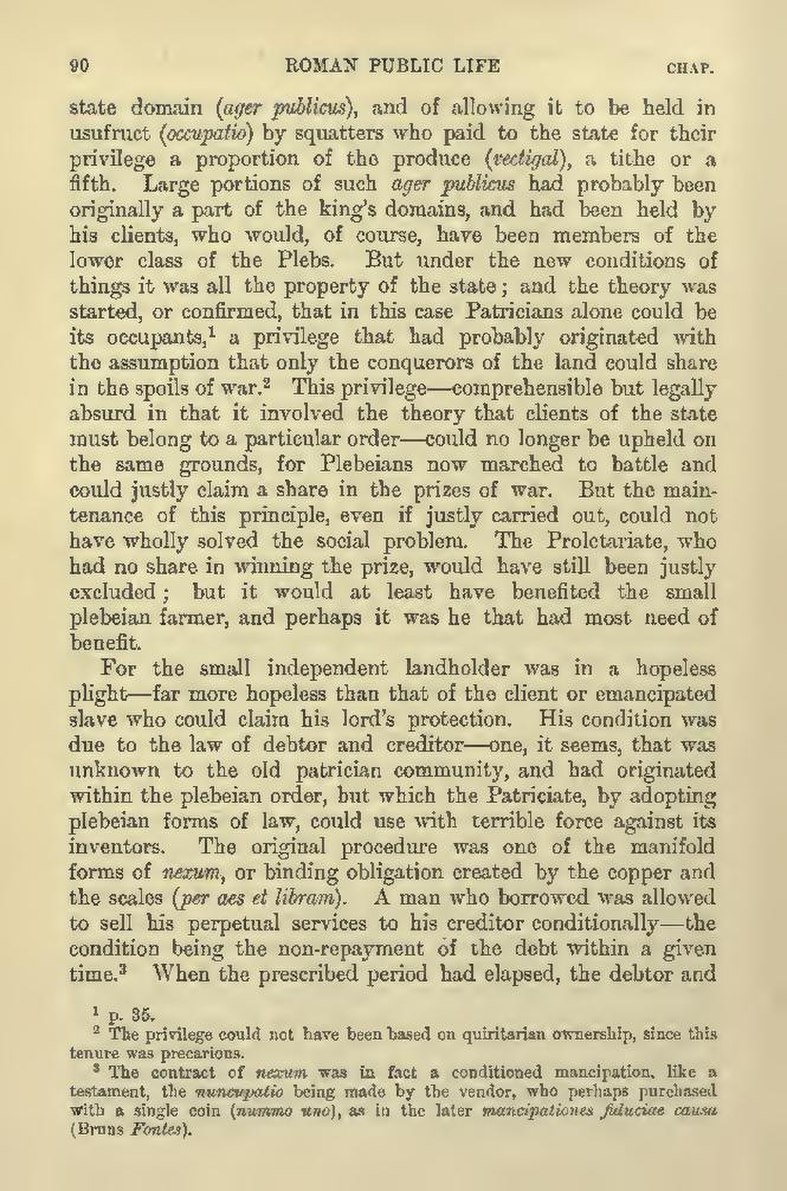state domain (ager publicus), and of allowing it to be held in usufruct (occupatio) by squatters who paid to the state for their privilege a proportion of the produce (vectigal), a tithe or a fifth. Large portions of such ager publicus had probably been originally a part of the king's domains, and had been held by his clients, who would, of course, have been members of the lower class of the Plebs. But under the new conditions of things it was all the property of the state; and the theory was started, or confirmed, that in this case Patricians alone could be its occupants,[1] a privilege that had probably originated with the assumption that only the conquerors of the land could share in the spoils of war.[2] This privilege—comprehensible but legally absurd in that it involved the theory that clients of the state must belong to a particular order—could no longer be upheld on the same grounds, for Plebeians now marched to battle and could justly claim a share in the prizes of war. But the maintenance of this principle, even if justly carried out, could not have wholly solved the social problem. The Proletariate, who had no share in winning the prize, would have still been justly excluded; but it would at least have benefited the small plebeian farmer, and perhaps it was he that had most need of benefit.
For the small independent landholder was in a hopeless plight—far more hopeless than that of the client or emancipated slave who could claim his lord's protection. His condition was due to the law of debtor and creditor—one, it seems, that was unknown to the old patrician community, and had originated within the plebeian order, but which the Patriciate, by adopting plebeian forms of law, could use with terrible force against its inventors. The original procedure was one of the manifold forms of nexum, or binding obligation created by the copper and the scales (per aes et libram). A man who borrowed was allowed to sell his perpetual services to his creditor conditionally—the condition being the non-repayment of the debt within a given time.[3] When the prescribed period had elapsed, the debtor and
- ↑ p. 35.
- ↑ The privilege could not have been based on quiritarian ownership, since this tenure was precarious.
- ↑ The contract of nexum was in fact a conditioned mancipation, like a testament, the nuncupatio being made by the vendor, who perhaps purchased with a single coin (nummo uno), as in the later mancipationes fiduciae causa (Bruns Fontes).
